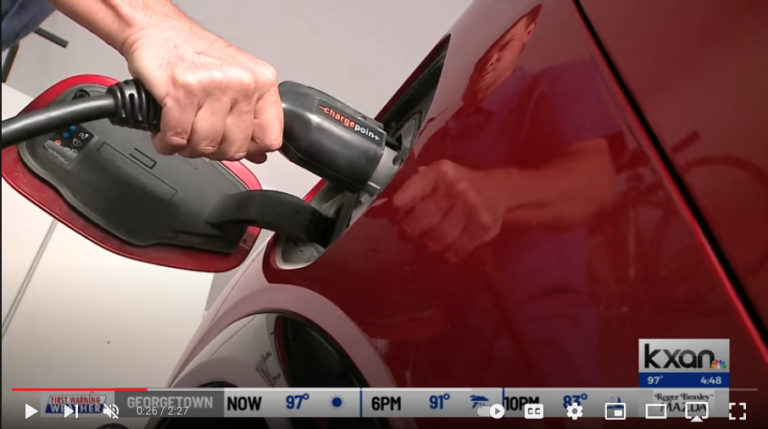April 8, 2015
Statewide Effort Includes Commercialization Lab, Water Technology Incubator and Statewide Customer Product Testing
(AUSTIN – April 8, 2015) With the state’s population growing rapidly and another year of forecast drought, a newly-formed consortium of Texas universities and water providers announced today that it is launching a statewide research and development effort focused on water conservation technologies. The effort includes a commercialization lab focused on promising emerging technologies, a water technologies incubator and a statewide research testbed involving hundreds of Texas households.
“Growing populations and drought are threatening water supplies from California to Florida,” said Pecan Street CEO Brewster McCracken. “Our members have joined together to develop and test promising hardware and software solutions so we can ensure that utilities, communities and customers have access to data-driven information and cost-effective innovations.”
The University Municipal Water Consortium is a joint effort of over 25 Texas state, regional and local water providers and university researchers from Texas A&M, UT-Austin and UT-San Antonio. Its focus on municipal water use is driven by estimates from the Texas Water Development Board that urban water use in Texas is growing nine times faster than all other water uses combined.
As part of the consortium’s announcement, it issued a Request for Information targeted to companies that make residential water use measurement and sprinkler system control hardware. The consortium intends to purchase equipment and operate in an R&D testbed in hundreds of homes in Arlington, Austin, East Rio Hondo, El Paso, Houston, and San Antonio. Expansion to additional communities within Texas and in other states is likely.
This research testbed will generate an unprecedented amount of data on customer water use. In fact, the consortium estimates, by 2016 the research testbed will be generating more customer water use data each month than is currently managed each month by all Texas water utilities combined. The consortium will use this data to develop and test a suite of open source protocols for configuring connected home devices with water meters. Through the data made possible by these protocols, the consortium will test consumer mobile applications that help customers track water use and that send real-time notifications about major water loss events such as hoses accidentally left on, toilet flappers stuck open, inefficient sprinkler system settings and broken pipes.
Wasted water from such unintended events accounts for a surprisingly large portion of home water use. Historically, it has been difficult for customers or utilities to detect these unintended water use events – especially when they occur outdoors or in a home’s foundation.
With the research testbed and lab testing assets in place, the consortium will also carry out third party testing and customer field trials of water supply and demand products and behavioral tools. Special attention will be placed on measuring and verifying the efficacy of various conservation solutions — from leak detection technology to public conservation messages and tactics.
The consortium is led by UT-Austin-based Pecan Street Inc. Founded in 2009 through seed funding from UT-Austin’s Cockrell School of Engineering, Pecan Street is an independent nonprofit institute focused on the utility sectors. It conducts consumer energy use and connected-home product testing in 10 states, and it uses anonymized data from this work to support university research and commercialization at over 50 universities in 12 nations, including Prairie View A&M, SMU, Texas A&M, Texas Tech, UT-Arlington, UT-Austin and UTSA. In 2014, Carnegie Mellon University researchers estimated that Pecan Street manages the world’s largest research database of customer energy use.
Funding for the consortium’s R&D includes a $4 million Subchapter E matching fund grant from the Texas Emerging Technology Fund. In addition to the ETF award, the consortium has received financial and equipment support from technology firms including Dell, Intel, 3M, Landis + Gyr (Toshiba), LG, NRG, Nest Labs, Shell, Schneider, OneGas, PARC (Xerox), Siemens, Freescale and WaterSmart.
“This opportunity involves many areas where Texas universities have excelled, including applied research, technology incubation and commercialization” said Dr. Thomas Edgar, the George T. and Gladys H. Abell Chair in chemical engineering at UT-Austin and Pecan Street board member. “This consortium presents a chance to leverage the research excellence of our universities to accelerate development of practical, commercially-viable water technology solutions.”
Texans who volunteer to participate in the consortium’s research will receive a free mobile app that leverages the systems’ capabilities to provide real-time in-home leak detection and water bill management. The free app, Pecan Street Blue, was released recently on the Apple App Store and Google Play Store. The app is confidential, secure, and private and will help participants track their daily water use and water bill. For phone users that are NOT part of the research network, a demo mode is available.
The consortium’s membership includes City of Allen, City of Arlington, Austin Water, City of College Station, City of Dallas, City of Corpus Christi, East Rio Hondo Water Supply Corporation, El Paso Water Utilities, City of Frisco, City of Georgetown, Home Builders of Greater Austin, City of Horseshoe Bay, City of Houston, City of Irving, City of Killeen, Lower Colorado River Authority, City of Mesquite, North Texas Municipal Water District, City of Pflugerville, Rio Grande Regional Authority, City of Round Rock, San Antonio Water System, San Jacinto River Authority, Tarrant Regional Water District, Texas Association of Builders, Texas Rural Water Association, Texas Rural Water Foundation, Texas Section – American Water Works Association, Texas Water Development Board and City of Wylie.
About Pecan Street
Located at The University of Texas at Austin, Pecan Street provides university researchers, utilities and technology companies with access to the world’s best original data on consumer energy and water consumption behavior, testing and verification of technology solutions, and commercialization services.
Its network of over 1,200 research volunteers is the first of its kind on the planet. Its anonymized research database, the largest source of disaggregated customer energy data, is used by university researchers and industry-leading companies around the world.
All of Pecan Street’s research, including the source datasets, is available for free to university faculty and students around the world at Pecan Street’s Dataport.
Pecan Street is a 501(c)(3) applied research and commercialization institute.
Contact: Colin Rowan, Pecan Street, media@pecanstreet.org, 512-222-9603












